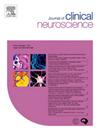Oral health as a modifiable risk factor for neurodegeneration: Prudent optimism and interdisciplinary action
IF 1.8
4区 医学
Q3 CLINICAL NEUROLOGY
引用次数: 0
Abstract
Neurodegenerative diseases, including Alzheimer’s disease (AD) and Parkinson’s disease (PD), represent a growing public health burden, necessitating exploration of modifiable risk factors. Emerging evidence suggests a link between poor oral health, particularly chronic periodontitis, and neurodegeneration, mediated by systemic inflammation, direct bacterial invasion, and disruptions in the microbiota-gut-brain axis. Periodontal pathogens, such as Porphyromonas gingivalis, have been suggested to contribute to neuroinflammation, blood–brain barrier dysfunction, and amyloid-beta aggregation, all of which are implicated in AD pathology. Additionally, tooth loss and masticatory dysfunction could further exacerbate cognitive decline through reduced cerebral stimulation and impaired nutrient absorption. While the association between periodontitis and neurodegeneration is compelling, causality remains uncertain, warranting further longitudinal and interventional studies. Interdisciplinary collaboration between neurologists and dental professionals is essential to establish oral health as a potential preventive strategy for neurodegenerative diseases. Routine periodontal screenings, improved oral hygiene awareness, and early intervention could help mitigate cognitive decline. Moreover, salivary biomarkers show promise as non-invasive tools for early detection of neurodegeneration. Addressing socioeconomic and healthcare disparities in access to both dental and neurological care is crucial in minimizing disease burden. Future research should focus on mechanistic studies and randomized trials to determine whether and how periodontal interventions can influence neurodegenerative disease progression.
口腔健康是神经退行性疾病可改变的危险因素:谨慎乐观和跨学科行动
神经退行性疾病,包括阿尔茨海默病(AD)和帕金森病(PD),代表着日益增长的公共卫生负担,有必要探索可改变的危险因素。新出现的证据表明,口腔健康状况不佳(特别是慢性牙周炎)与神经退行性变之间存在联系,神经退行性变由全身性炎症、直接细菌入侵和微生物-肠-脑轴的破坏介导。牙周病原体,如牙龈卟啉单胞菌,已被认为有助于神经炎症、血脑屏障功能障碍和淀粉样蛋白聚集,所有这些都与AD病理有关。此外,牙齿脱落和咀嚼功能障碍可能通过大脑刺激减少和营养吸收受损进一步加剧认知能力下降。虽然牙周炎和神经退行性变之间的联系是令人信服的,但因果关系仍然不确定,需要进一步的纵向和介入性研究。神经学家和牙科专业人员之间的跨学科合作对于建立口腔健康作为神经退行性疾病的潜在预防策略至关重要。常规牙周检查、提高口腔卫生意识和早期干预有助于减轻认知能力下降。此外,唾液生物标志物有望成为早期检测神经变性的非侵入性工具。解决在获得牙科和神经保健方面的社会经济和保健差异对于尽量减少疾病负担至关重要。未来的研究应该集中在机制研究和随机试验上,以确定牙周干预是否以及如何影响神经退行性疾病的进展。
本文章由计算机程序翻译,如有差异,请以英文原文为准。
求助全文
约1分钟内获得全文
求助全文
来源期刊

Journal of Clinical Neuroscience
医学-临床神经学
CiteScore
4.50
自引率
0.00%
发文量
402
审稿时长
40 days
期刊介绍:
This International journal, Journal of Clinical Neuroscience, publishes articles on clinical neurosurgery and neurology and the related neurosciences such as neuro-pathology, neuro-radiology, neuro-ophthalmology and neuro-physiology.
The journal has a broad International perspective, and emphasises the advances occurring in Asia, the Pacific Rim region, Europe and North America. The Journal acts as a focus for publication of major clinical and laboratory research, as well as publishing solicited manuscripts on specific subjects from experts, case reports and other information of interest to clinicians working in the clinical neurosciences.
 求助内容:
求助内容: 应助结果提醒方式:
应助结果提醒方式:


